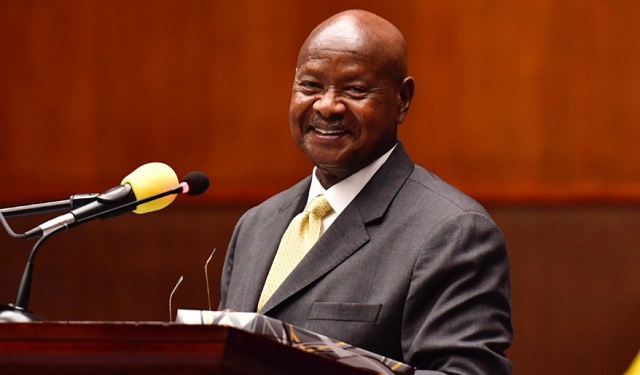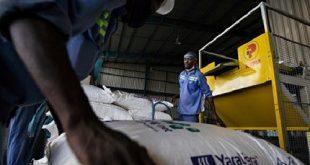
An assessment of the President’s annual speech
Kampala, Uganda | IAN KATUSIIME | A lot has happened in the last one year; the standoff between Uganda and Rwanda has escalated into a full-blown crisis and there are fears over what could happen anytime due to the tension at the common border.
Therefore many Ugandans expected President Yoweri Museveni to hint about the tiff the country has with its southeastern neighbour as he delivered his annual State of the Nation Address. He, however, did not.
It was a long three hour speech of dizzying statistical overload about economics, growth and projection. An analysis of the speeches by Museveni in the last few years shows a mix of monotony, distractions and lofty promises and with a strong focus on infrastructure and growth of the economy.
For the average Ugandan and perhaps those in the opposition, it was the same story; a glossing over of events, a weak hand on security and a fitful attempt to deal with job creation and present an impressive performance of the economy. The president spoke with the feeling that Ugandans do not appreciate his efforts.
“Those are the facts, you can go and hang,” Museveni said cheekily as he belted out some of the economic statistics from his speech to the audience at the Kampala Serena Hotel.
Museveni, however, found time to elaborate on subjects he has been vocal about lately like land fragmentation. He lamented that land could be of no value if the activity is unchecked. “The Idea of land fragmentation is equivalent to disabling the land. Land that could produce a lot for generations ago can now barely produce anything because it has been fragmented into small pieces. We’re now having land with disabilities,” he remarked.
And what is Museveni’s annual address without touting economic performance? The President stressed that Uganda had grown its per capita income faster than most European countries in the last thirty years. Adding that Uganda’s economy stands at Shs109trillion ($29.5 billion) in FY 2018/2019 with per capita income at Shs3 million.
“Although this is below the level required for the attainment of middle income status, the renewed impetus of the economy and the large economic base being created will catapult the economy to prosperity within a short period in the future,” he said.
Ordinarily, the State of the Nation Address is the annual accountability exercise from the Head of State with each year bringing different expectations from the public. And despite the weariness of some of the public to a president who has delivered it for 30 years, there is still expectation from this speech.
Last year was no different as many were disappointed by the manner in which Museveni glossed over the then state of the nation- one of fear caused by the high profile shootings and the incessant kidnappings, the latter happening on a near daily basis.
Museveni revealed that the Allied Defence Forces (ADF), a shadowy rebel group based in eastern Democratic Republic of Congo (DRC), was behind the killings in Kampala in the last few years. The statement, however, appeared ironic since Museveni said the ADF were in DRC being protected by the UN and that if the ADF dared to re-enter Uganda, they would be defeated.
In 2018, Museveni laid emphasis on the wide reach of roads and electricity, in typical Museveni fashion. “There is tarmac connecting all border points from Koboko to Kisoro,” he stated. In 2018, Museveni surprised the audience when he named a new committee to fight corruption which to some looked like a distraction because of the tenuous security situation in the country then.
This year, he reveled in the revival of Uganda Airlines in addition to a total of 4,900 factories employing an estimated 700,000 people.
Some of the issues he addressed, however, like government focusing on ICT, services, industrialisation are carried over from previous years. So is the recapitalisation of Uganda Development Bank (UDB), meant to give soft loans to businesspeople in agriculture and those in small industries. Museveni said UDB has so far received Shs272billion; including Shs53billion which came in this financial year.
When The Independent interviewed then UDB chairman, Samuel Sejaaka, in 2017, he revealed that the bank had received Shs39billion in total since the first capital injections started coming in in 2015.
At the end of his speech, Museveni touched on another of his pet projects; the East African Federation which he said he was happy to champion with the blessing of the current EAC chairman, Rwandan President Paul Kagame.
It was surprising when Museveni delved into political economic integration given that Kagame closed the Rwandan border to Uganda and it is now four months since. It was even more surprising because the EAC is marking the milestone of twenty years later this year in November with the EAC in such a fractured state.
The reactions to the speech reflected a not so enthusiastic tone. Norbert Mao, president general of Democratic Party, commenting on the address joked that Museveni had put his 2018 speech in a microwave and served it for his 2019 edition.
Masaka Municipality MP Mathias Mpuuga told journalists that the speech was a “catalogue of selected lamentations.” This could be due to Museveni’s persistent complaints about Uganda importing a lot of items. The President also complained about the lethargy of government officials and in one particular example, the low voltage of electricity which frustrated a new factory established in Karamjoa sub-region.
 The Independent Uganda: You get the Truth we Pay the Price
The Independent Uganda: You get the Truth we Pay the Price


